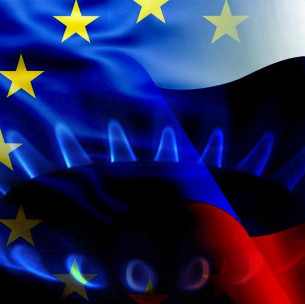
© Dmitry Rogulin/TASS
Top stories from the Russian press on Monday, June 6th, prepared by TASS
Izvestia: Ankara and Moscow plan to open corridor for grain from Odessa
Moscow has reached an agreement with Kiev and Ankara on a preliminary scheme for the exit of Ukrainian ships carrying grain from Odessa: the Turkish military will help demine the neighboring country's territorial seas and also escort ships to neutral waters. A high-ranking source told Izvestia, the Russian ships will meet the vessels there and escort them to the Bosphorus. According to the source, the scheme has only been agreed upon for Odessa so far, and at the same time, all Ukrainian grain is now transferred to the EU by rail and bus, but it has not yet reached end consumers. The Turkish parliament told Izvestia that Ankara is taking part in this operation because resolving the international food crisis is critical for the country.
“The scheme will be as follows: the Turkish military will demine the coastal area around Odessa. Vessels will leave the port, escorted by Turkish ships, for the neutral waters of the Black Sea to a specified location. They will be guarded farther to the Bosporus by Russian warships to ensure their safe passage through the Black Sea and to avoid provocations. This procedure has been agreed upon with Turkey and Ukraine; the precise route of the ships will be specified later,” the source emphasized.
According to the source, the "road map" will be approved on June 8-9 during the visit of the heads of the Russian Foreign Ministry and the Ministry of Defense to Turkey. Kremlin Spokesman Dmitry Peskov has already confirmed that Sergey Lavrov will discuss the issue of grain exports during his visit to Ankara. The source also specified that UN representatives would also participate in the talks.
Turkey's intention to participate in the unblocking of Ukrainian ports is motivated by the fact that the country itself may suffer from the food crisis and wants to prevent it, Member of the National Assembly of Turkey Ozturk Yilmaz told the newspaper.
Turkish political scientist Onur Sinan Guzaltan noted that Ankara's participation in this matter is "anticipated and should be regarded normal," given its mediation in the negotiations between the Russian and Ukrainian delegations.
Nezavisimaya Gazeta: EU’s next round of sanctions unlikely to include embargo on Russian gas
The seventh round of EU sanctions against Russia could be implemented this month. The EU summit, which will take place on June 23-24, will focus on economic challenges, among other things. Some EU countries request that the new package include a ban on Russian gas supplies. However, according to Nezavisimaya Gazeta, this is unlikely to happen.
The exact date of adopting the seventh round of sanctions is unknown. According to the EU's previous work pattern, it takes one to two months to agree on and compile a sanctions package. As a result, the next EU summit on June 23-24 is the first date when further limits could be imposed. Ukraine is expected to be the major topic of discussion. Its president, Vladimir Zelensky, is advocating for the country to be admitted as an EU candidate. Ukraine has already submitted an application.
However, against this background granting Ukraine the status of a candidate for EU membership in June becomes challenging, the newspaper writes. This increases the likelihood of imposing the new package of sanctions to "sweeten the pill" for Kiev. The effort to draw up these restrictions started when the sixth package was still in the works.
According to Nezavisimaya Gazeta, the gas embargo should be more damaging for the Russian economy than the oil embargo, at least because gas pipelines capable of transporting equivalent volumes of blue fuel to China and India do not exist in Russia. However, Europe is equally reliant on Russian gas.
“Sanctions are expected to be tightened even further on the gas that Russia may still sell, on all Russian banks, and on their access to the SWIFT system. I'm primarily referring to Gazprombank. A ban on technologies that can still be provided to Russia and employed in industry should be implemented as well,” Associate Professor of the Department of Integration Processes at MGIMO Alexander Tevdoy-Burmuli told the newspaper.
“It is yet unclear how the sixth package will work. Under these circumstances, if the seventh package is adopted this month, it will most likely be in a shortened version,” the expert added. In any case, if the new sanctions are adopted in such a radical manner, it will take time to implement them.
Izvestia: Serbia to benefit economically from not joining anti-Russian sanctions – Russian envoy
Serbia's decision not to join sanctions against Russia brings economic benefits to the country. Anti-Russian sanctions would lead to significant damage to Belgrade’s economy and social sphere, Russian Ambassador to Serbia Alexander Botsan-Kharchenko said in an interview with Izvestia. At the same time, Serbia’s EU candidate status does not affect development of its relations with Russia, he added.
"The Serbian economy is very connected with Russia, in a good way. This is one of the factors. Everyone understands that anti-Russian sanctions would lead to very noticeable damage to the economy and the social sphere,” the ambassador said.
Russia and Serbia are also working to switch to settlements in national currencies. “At the same time, the task of switching to payment in national currencies has been set in our trade in general and will be gradually addressed,” the ambassador said.
Russia understands that it is difficult for Serbia to withstand Western pressure, the ambassador added. "We realize that it is extremely difficult to resist the pressure from the West. Of course, it disappoints us and it does not go unnoticed – we make public statements and note these things in private conversations,” he said.
At the same time, there is a growing understanding in Serbia that it needs to more actively resist Western pressure not just in the financial sector, but also in political and international affairs, the diplomat noted.
Serbia's EU candidate status is not an impediment to the development of relations with Russia, the ambassador believes. “As for Russia, for the time being and in the near future, Belgrade's EU candidate status is not an obstacle to the development of our relations, with the understanding – which has been confirmed and we hope will remain stable – that Belgrade will pursue exactly the line it is currently pursuing,” the ambassador said.
Nezavisimaya Gazeta: Russia loses up to 20% of its European gas exports
Consumers in six European countries will not buy Russian gas from June 2022 – Poland, Bulgaria, Finland, the Netherlands, Denmark, and partly Germany have refused supplies from Russia. The overall drop in gas exports is expected to exceed 20 bln cubic meters per year. And, according to Nezavisimaya Gazeta, Russian gas exports to Europe will continue to fall in the future. Experts believe exports will decrease by 12 to 20% this year, with overall Russian gas production dropping by around 6%.
Gas Infrastructure Europe reported that since European countries started refusing to pay for gas under the new scheme, injection into European underground storage facilities (UGS) has been slowing down. In June 2022, the rate of gas injection into UGS facilities in Europe is 9% lower than the average for the previous five years.
At the same time, some experts are confident that the falling supply volumes will be hardly noticeable to Gazprom. “From the list of European countries with a total annual supply of 155 bln cubic meters per year, only five countries refused to pay in rubles – Poland, Bulgaria, Finland, the Netherlands, Denmark. That is, the ‘lost’ volume of supplies reached 19.1 bln cubic meters per year, or 12%,” TeleTrade analyst Alexey Fedorov told the newspaper. He also doubts Poland's ability to completely abandon purchases of Russian gas by October 2022, when the Baltic Pipe gas pipeline for the supply of Norwegian gas is expected to be completed. “Therefore, it cannot be ruled out that amid the global shortage of gas capacities, the rest of the countries that had already refused it, will still buy Russian gas, either directly or through third countries,” the expert added. “As for gas revenues, all attempts to complicate the logistics will lead to higher prices. As a result, Russia can benefit from this entire situation,” he noted.
“Production rate in Europe, like in Russia, varies throughout the year depending on the season. Now is the high construction season, field work is underway. The demand for electricity and gas is lower than it was during the cold period, and there is still time for bargaining and outrage over the new procedure for paying for Russian gas in rubles. All of these disagreements, however, have the potential to result in lost profits and opportunities on both sides,” senior lecturer at Plekhanov Russian University of Economics Alexander Timofeev told the newspaper.
Vedomosti: Experts don’t expect budget losses from embargo on Russian oil
Following extensive negotiations, the European Union agreed to impose an oil embargo as part of the sixth package of sanctions against Russia. The ban will be phased over six months for crude oil and up to eight months for oil products. Pipeline deliveries to countries most reliant on Russian energy resources, particularly Hungary, have been granted a temporary exception. According to experts interviewed by Vedomosti, the oil embargo will not have a significant impact on the budget this year because the gradual implementation of restrictions will give Russian companies time to redirect supplies to friendly countries, and high oil prices could compensate for the decline in exports.
It is not the right time to give an accurate estimate of the shortfall in budget revenues from the embargo on Russian oil imports by unfriendly countries, a representative of the Ministry of Finance told Vedomosti. At the same time, it is obvious that the market in the near future will be reoriented to other directions for oil exports, which will help maintain the level of budget revenues and oil sector activity, the source added.
In the first half of the year, the budget will not have time to go into deficit, and if the situation with prices on the gas and oil markets remains the same, a surplus is possible at the end of the year, Associate Professor at the Financial Markets Department at the Plekhanov Russian University of Economics Denis Perepelitsa believes. The share of oil and gas budget revenues will grow to 60% in this scenario, the expert estimated.
Over the first half of the year, the budget surplus may remain above 1 trillion rubles ($16.39 bln), Professor of Finance at New Economic School Oleg Shibanov said. However, at the end of the year, the budget will show deficit, he added.
The EU embargo will not affect the Russian economy, since other countries are interested in Russian oil, which is traded at a discount, Associate Professor of the Department of Economic Theory of the Plekhanov Russian University of Economics Tatyana Skryl told Vedomosti. In particular, India is boosting purchases not only for its own needs, but also for commercial purposes, in order to resell part of the volumes to European countries, she noted. The discount on Russian oil is large enough to make Urals oil attractive for Asian importers, Stock Market Expert at BCS World of Investments Igor Galaktionov believes.









